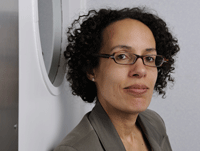
Union activists have accused Surrey Council of attempting to hive off its service for deaf people without consulting social work staff.
Unison has claimed the council failed to inform social workers of its intention to take part in the government’s social work practice pilot scheme ahead of applying.
The pilots, which are expected to start this summer, are based on existing practices for looked-after children. The Department of Health said it hoped social work practices would provide social workers with more control over their day-to-day practice.
Under Surrey Council’s proposals, services for people who are deaf or hard of hearing would be provided by a social enterprise comprised of former council staff.
But Paul Couchman, branch secretary of Surrey County Unison, said he had several concerns about the proposals, including the possible fragmentation of services, future changes to staff terms and conditions and the threat of privatisation by the back door.
He said: “There may not be sufficient resources to adequately fund the social enterprise and the current external care market is, if anything, suffering even more than the statutory sector from funding cuts.
“Once the initial government start-up funding has gone the financial situation will become precarious.”
Couchman added: “Surrey Council applied to be part of the social work practice pilot without any prior consultation with staff involved.
“The proposed outsourcing of deaf services is just another way of saving money and relinquishing local authority responsibility for a vital public service; we hope our members will see through the spin and vote to remain in house.”
But a spokesperson for the council argued that social workers taking part in the pilot would have “more freedom and flexibility to manage themselves”.
“They will be able to spend more time directly with the people they support and be more creative about the way they work by jointly developing services,” the spokesperson added.
“We were already developing plans with deaf people to do things differently but better because they told us they want a service independent of the council. This pilot provides the opportunity to test those plans.”
Unison last year called on local members to boycott Sandwell Council’s social work practice for looked-after children.
The authority subsequently dropped out of the scheme, citing a need to concentrate on restructuring its children’s social care department.
Meanwhile, the Department for Education has hit back at claims that councils in England are not interested in the children’s pilots.
Unison’s national officer, Helga Pile, said the government was “really struggling to get people interested” after a Freedom of Information request by Community Care revealed only 10 councils had expressed a desire to take part in the second wave of pilots, with a further six submitting detailed proposals.
But a spokesperson for the department said: “One reason the response to the pilots has not been higher is that many local authorities are significantly restructuring their services and lack capacity to make other changes at present, despite an interest in the concept.”
What do you think? Join the debate on CareSpace
Keep up to date with the latest developments in social care. Sign up to our daily and weekly emails
Related articles
Unison Workplace Zone: Mutuals in social care may harm workforce, warns UNISON
Adult social workers to be ‘freed’ from council control
Social work practices could fragment services, warns Adass
Progress at Evolve YP and Catch22 social work practices for children in care
Sandwell calls time on practice pilot for looked after children


 Bournemouth, Christchurch and Poole
Bournemouth, Christchurch and Poole  Hampshire County Council
Hampshire County Council  Lincolnshire County Council
Lincolnshire County Council  Norfolk County Council
Norfolk County Council  Northamptonshire Children’s Trust
Northamptonshire Children’s Trust  South Gloucestershire Council
South Gloucestershire Council  Wiltshire Council
Wiltshire Council  Wokingham Borough Council
Wokingham Borough Council  Children and young people with SEND are ‘valued and prioritised’ in Wiltshire, find inspectors
Children and young people with SEND are ‘valued and prioritised’ in Wiltshire, find inspectors  How specialist refugee teams benefit young people and social workers
How specialist refugee teams benefit young people and social workers  Podcast: returning to social work after becoming a first-time parent
Podcast: returning to social work after becoming a first-time parent  Podcast: would you work for an inadequate-rated service?
Podcast: would you work for an inadequate-rated service?  Family help: one local authority’s experience of the model
Family help: one local authority’s experience of the model  Workforce Insights – showcasing a selection of the sector’s top recruiters
Workforce Insights – showcasing a selection of the sector’s top recruiters 

 Facebook
Facebook X
X LinkedIn
LinkedIn Instagram
Instagram
Comments are closed.